Scripture and homily in brief for HARVEST THURSDAY, the first (liturgically) of the Four Great Thursdays of AUR, and the 12th of the 12 Days of Thanksgiving.
Psalm 95:1-3
1 Let us go sing to YHWH; let us shout out to the Rock of our salvation!
2 Let us come into His presence with thanksgiving; and with song let’s shout out!
3 For YHWH is a great god, and great king above all gods.
Homily in Brief
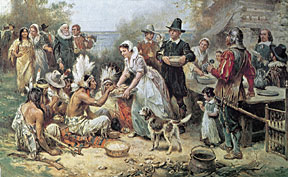 Thanksgiving is often recognized as an inter-cultural holiday, celebrating the cooperation of European Pilgrims and Native Americans, but it is also an interfaith holiday. After all the Wampanoag were not Christian.
Thanksgiving is often recognized as an inter-cultural holiday, celebrating the cooperation of European Pilgrims and Native Americans, but it is also an interfaith holiday. After all the Wampanoag were not Christian.
For American Reform Unitarians the interfaith nature of Thanksgiving actually reinforces its Christian importance, for we see Christianity not as a religion defined against others, but as an idiom of Truth that can be translated to other idioms.
True Christianity has from its inception been a religion that sees the good in members of other religions.
Jesus praised the faith of the pagan centurion over that of his fellow Jews, and used a member of the hated Samaritan sect (considered heretics at the time) as a symbol of goodness in explicit contrast to leaders of his own faith community. When ministering to the Greeks, the Apostle Paul even went so far as to claim that the “Unknown God” long worshiped in Hellenistic religion was in fact the very same God of Abraham and Jesus.
Some might dismiss Paul’s assertion as a marketing technique, and perhaps so. However, the willingness to seek Christian truth in other religions validates Christianity as a religion about reality rather than a religion merely about itself.
↔
There is, in every religious community, a moral tension between loyalism and realism. Realism sees the religion as an idiomatic description of reality, therefore open to other forms of description. Loyalism reduces that description to a mere catechetical shibboleth, a set of talking points used like passwords to prove one’s membership in the club. Under the loyalist vision, a religion becomes an entrenched camp isolated (by its own members) from the rest of the universe.
A religion truly about the Creator cannot be an enclave in Creation. The truth of God does not need to be spread across God’s own work by a tiny minority of creatures; God’s truth is evident throughout the universe, to be seen by those with eyes to see and heard by those with ears to hear.
And, necessarily, using the words of their own languages and imagery of their own cultures.
↔
The idiomatic approach of Reform Unitarianism takes realism to its full measure by recognizing that some of the underlying ideas of other religions must be valid (and correspond to Christian concepts) if the God we worship is indeed the God of all Creation, and not merely an imagined god of ethnic or sectarian narcissism.
For us, the Thanksgiving story represents two groups of God’s children, speaking in different idioms, coming together for a precious moment of peace and communion. The words and labels each used to discuss the ultimate nature of reality and its moral implications may have differed, but if there is such an Ultimate Truth then it must be the same Ultimate Truth for all, despite the difference in languages used to describe it.
The politicized, sectarian, God-denying, and autolatrous view is that the Native Americans were un-Christian heathens. The truly Christian, universal, Creator-affirming, moral view is that although the compassion the Wampanoag showed the Pilgrims may not have been “Christian” charity, it was certainly Christian charity.
Have a wonderful feast day, and give thanks for all of the blessings in your life!

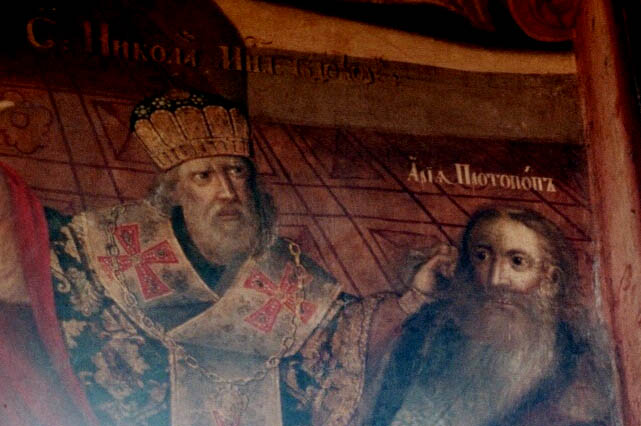

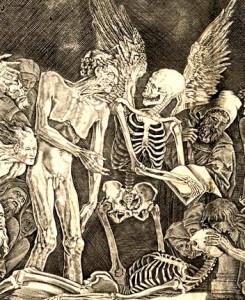 Can Christians celebrate Halloween?
Can Christians celebrate Halloween?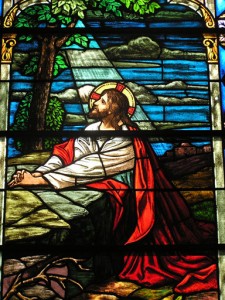
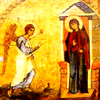
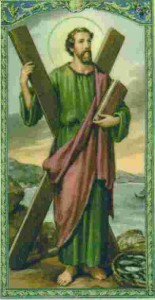 Andrew is not the most well-known Apostle. However, he was the first disciple of Jesus Christ.
Andrew is not the most well-known Apostle. However, he was the first disciple of Jesus Christ.